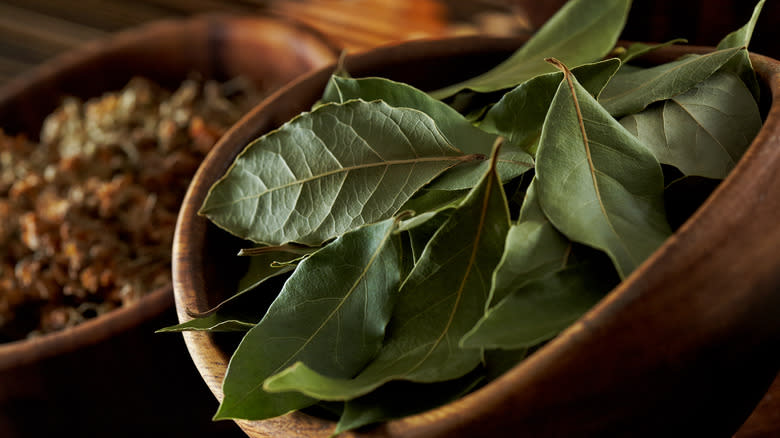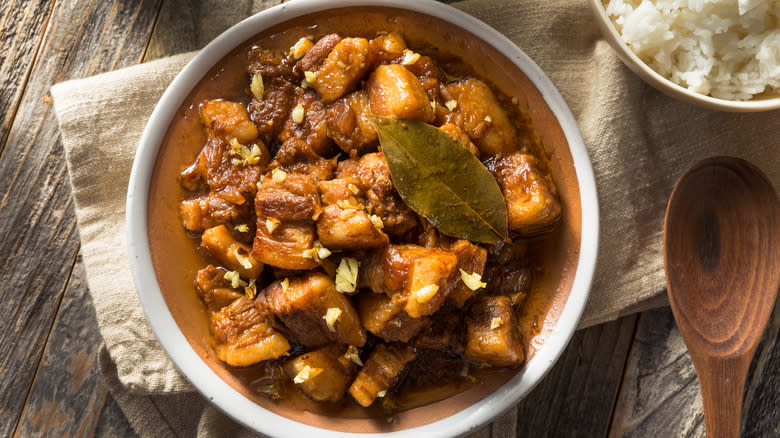Here's Why Bay Leaves Are Always Cooked Whole

As far as common cooking ingredients go, bay leaves are actually a little controversial. In fact, some cooks claim that they're just overrated leaves. This might be partially true, but the beauty of this herb lies in its application.
When cooking with bay leaves, you'll want to use fresh, whole leaves if you can -- with an emphasis on whole. Despite their reputation, bay leaves contain a strongly flavored oil that can be released and ruin your dish if the leaf is broken or ground. Oh, and there's another reason to leave your bay leaves intact: It's a lot easier to fish out a whole leaf from a pot of soup than to skim for little pieces.
Bay leaves do have flavor, and if used correctly, they should impart a slight eucalyptus taste that's vaguely cooling and herbaceous but totally unto itself. Bay leaves should be enjoyed in modest amounts -- and please, only in their whole leafy state.
Read more: French Cooking Tricks You Need In Your Life
Can You Eat Bay Leaves?

There are many varieties of bay leaves but the one most commonly found in the spice aisle of your local American grocery store comes from the bay laurel tree. Laurel's popularity dates back to the ancient Greeks, and not only as an ingredient in cooking. Bay was used medicinally, and the tree's slender branches were wreathed into crowns to bestow upon victorious athletes. The bay laurel's leaves have been used for millennia, and while the plant may have once been prized by seers and healers, its primary function these days is in the kitchen.
If you're wondering if you can eat bay leaves, the short answer is you can but shouldn't. For a long time, the bay leaf was mythologized as being toxic and causing illness. Bay should be removed from any dish you're cooking once it's done its job, but don't worry, you won't die if you eat it. The leaves are technically edible, but they're not so fun to chomp on; they're bitter, gritty, and will absolutely make a reappearance if swallowed.
How To Handle Them Best

If you're going to use bay leaves in your cooking, you should know how to handle them with care. They are more delicate than they seem, although you might know this if you've touched the dried leaves that have been lurking in your pantry for two years. The longer bay leaves sit around in storage, the less flavor they will add to your dishes, which is probably why some people think they don't taste like anything.
Cooking with fresh bay leaves is ideal, but it's best to use them quickly. You can also dry fresh bay leaves if you plan on using them within a couple of weeks. Not all of us are lucky enough to have a bay laurel tree in our backyard, so it can be difficult to get them that fresh. If you must use dried bay leaves, try not to let them linger in the pantry for longer than six months for optimal flavor.
Read the original article on Daily Meal.

